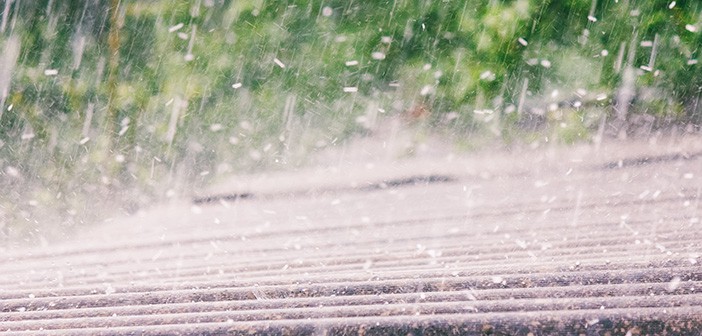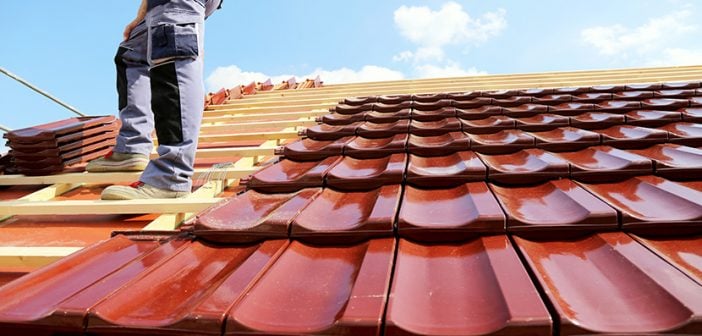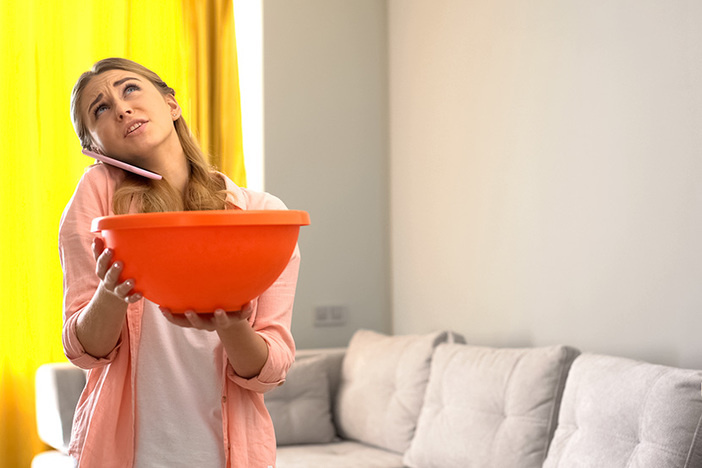Probably the thing that scares new landlords and property managers the most is what to do when a tenant calls at 2 a.m. because water is shooting out of their pipes in all directions. This fear is so paralyzing, in fact, I’ve heard stories where people eschewed becoming a landlord just to avoid it. Some have hired a property manager instead of managing themselves for only that reason.
How to Start Building Wealth With Real Estate
Our step-by-step guide to “the stack” shows how you can go from zero to real estate hero—and make your first million.
Indeed, hiring a manager is one option, but there will still be some oversight involved. And if you do manage yourself, there are certainly ways to deal with these problems. You just have to have a plan going into it.
Here’s how to be prepared for the inevitable emergency calls you will get.
How to Handle Emergency Maintenance
The most important thing to do right off the bat is to accept that emergency maintenance will happen. It is a fact of life. Don’t cross your fingers and hope for the best. Accept it will come from time to time and plan how to handle it.
The second is to figure out what exactly is emergency maintenance, anyway? What’s not?
Related: MORTGAGE CONSULTATION
If it is a fire, that is an emergency. But the resident needs to call the fire department, not you. If there was a break-in, that is also an emergency. But they need to call the police.
Regarding maintenance issues, the rule of thumb we like to use is that a tenant should not be able to expect faster service than if they were a homeowner. Even if it’s cold outside and the furnace goes out, it can probably wait until tomorrow. (Although, if that happens on Friday night, you should probably fix it on Saturday and not wait until Monday.) If there’s ice all over the roads and there is a snowstorm going on, you cannot get out there any quicker than it it was a homeowner who called an HVAC company.
The vast majority of “real” emergencies fall into one of three categories:
- Water leak
- Sewage backup
- No functional toilet
I would possibly add a severe roof leak to that list, but you can’t fix a roof in the middle of a downpour. Still, you can bring some large buckets and the like to hopefully prevent any major damage from taking place.
Most other things can wait until the next day—or even for a few days. So, you need to have thick skin or hire a property manager to deal with tenants. If you let your residents get relatively trivial maintenance issues taken care of at 2 a.m., more and more things will become “emergencies.”
Otherwise, how you handle emergency maintenance will depend a great deal on how you are managing your properties.

Third-Party Property Manager
If you choose to hire a third-party management company, the important thing is to ask them how they handle emergency maintenance. You want to make sure they:
- Have a good plan in place
- Take care of serious issues consistently and quickly
- Classify emergency and non-emergency issues correctly, and handle each appropriately
You want to ask if they charge extra for emergency maintenance, too. If so, how much? It’s not unreasonable to have a fee, but it should not be very substantial.
It’s also essential to set a limit on how much a property manager can spend without your permission. Common limits are $300, $500, and $1,000. I would recommend $500 to start. Then, maybe up it to $1,000 if they prove their worth. Keep in mind that given certain emergencies may require expensive fixes, you may on very rare occasions get a late-night call from a property management company.
Once you hire a management company, it’s not a bad idea to ask from time to time how many emergency maintenance requests there have been. Have there been any complaints from tenants regarding maintenance? Hold their feet to the fire and make sure they understand this is important.
And if you have issues with their maintenance or your rate of turnover is high, do not be afraid to switch management companies. Remember, maintenance and customer service are basically synonymous in property management.
DIY Maintenance
The biggest thing to remember is that you cannot do everything yourself—no matter what you might think. There are things you will need to find contractors for, particularly regarding plumbing and sewage backups.
The nice part is that in virtually every city there is a Roto-Rooter or Snake ‘n’ Rooter that you can call at any time of the day or night. Unfortunately, they are pretty expensive. If possible, find another less-expensive plumber you can call in case of emergencies.
I would also recommend not handing out your cell phone number to residents. Use a Google Voice number for maintenance or have it routed through your office line (if you have one). Indeed, we usually have the tenants leave a message and then call back immediately. (You will need to keep your phone by you and make sure you will be able to take these calls.) It will just become too much of a hassle otherwise, as many residents will call you directly about every little thing.
Finally, you need to have thick skin. Sometimes you need to say “no” and get to it tomorrow. It helps to make sure the resident is fully aware of what is and what is not an emergency when you sign the lease. Our lease signings go for an hour, because we want them to know all the rules in and out. We want to be able to reference them when residents call. Walking them through your processes, which should be clearly defined in your lease, will make it less likely they call for a non-emergency and easier to say no if they do.

Contractors or Vendors
Let’s say you decide to self-manage but contract out the maintenance. There are maintenance companies in many areas specifically for people who self-manage rentals. If you decide to use one of them, make sure to ask the same questions you would to a third-party property manager. Then, once hired, follow up to make sure they are performing well. Asking your residents for feedback is a particularly good idea here.
And keep in mind that, as mentioned above, whether you intend to DIY or contract out the bulk of your property maintenance, there may be times when a professional has to be called in to deal with major issues. Not even a third-party maintenance company is equipped to handle all tasks.
How to Hire Maintenance Techs as Employees
There’s a lot to say about hiring top-notch maintenance techs. Let’s discuss it briefly, and here’s a great resource if you’d like to read about it more in-depth: “The Quick Guide to Hiring For Entrepreneurs: How to On-Board Quality Team Members.”
In brief, the sit-down interview is less important with maintenance and construction workers than office staff—because they can’t easily prove their skills sitting around a desk. However, cosider giving a short quiz on maintenance topics to applicants to make sure they know what they are talking about. Also, call references and ask for feedback.
The first few weeks should be a tryout for any new-hire. If you already have a maintenance technician you trust on staff, have the new employee go around with the trusted one for a week or two to get a feel for their ability and work ethic. Received a lot of complaints from residents? That’s a good sign to move on.
As far as emergencies go, make sure in the interview that each maintenance tech knows emergency maintenance is part of the job. Once hired, let them know who to call if they cannot perform the repair. And if you have more than one maintenance technician, put them on a revolving schedule in terms of who is “on call.” No one wants to be on call all of the time. (So if you have two techs, for example, schedule one the first week and the other the next week.)
Have techs record everything they do (even if it is telling the resident the repair will not be until tomorrow) in your property management software so you can review it at your will.
The Bottom Line
Emergency maintenance does not happen often. For each unit, it will happen, on average, less than once a year. Just make a plan and follow through on that plan. Don’t let the fear of emergency maintenance keep you away from buying rental properties or getting a good night’s sleep.





